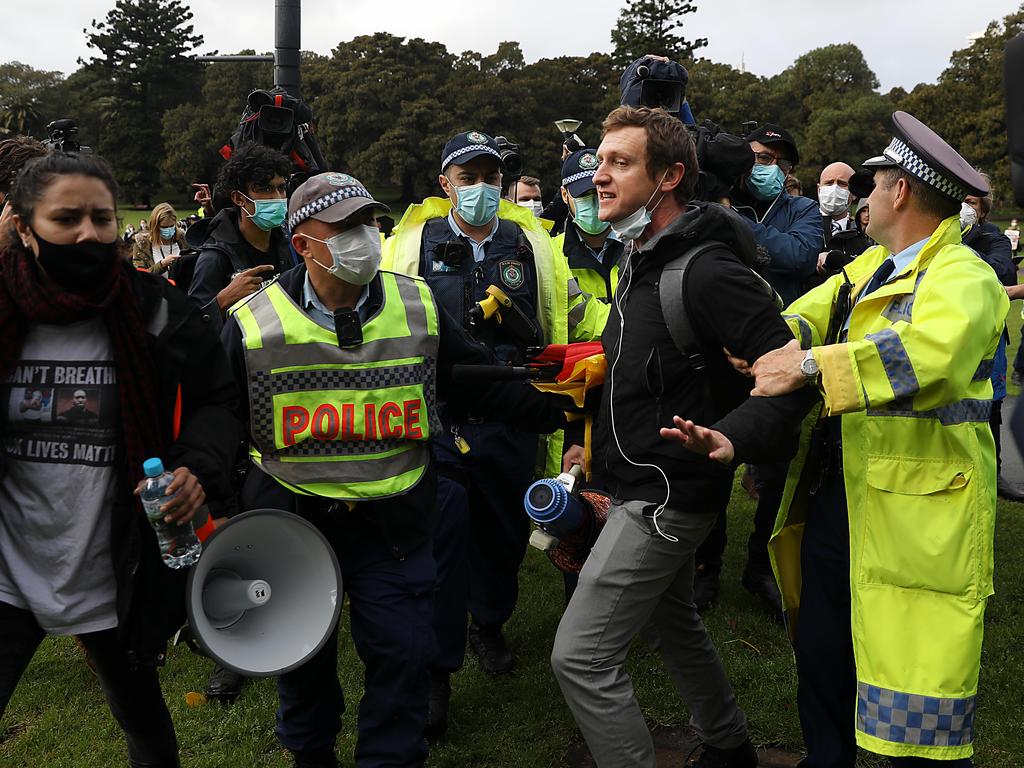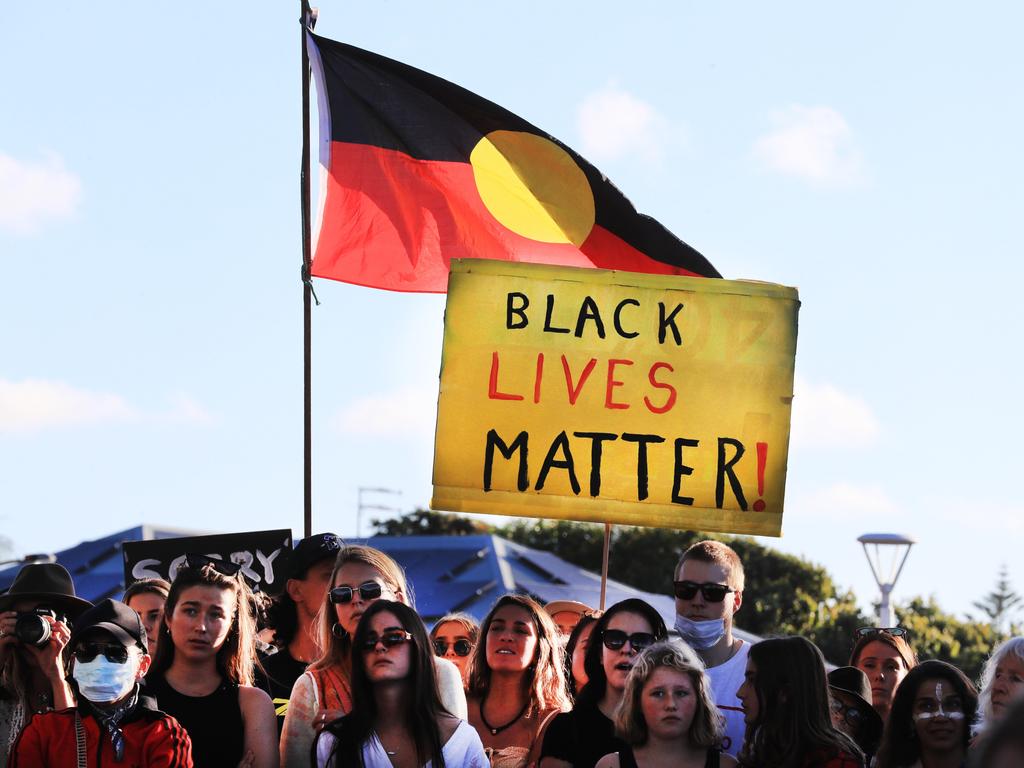Time to acknowledge your whine privilege


“After every single unconscious bias training that has ever been done, nothing’s ever improved,” he told staff during a Zoom meeting. “So unless you care, you actually won’t change.”
Last week Michael was vindicated in part, with the release of a report by the UK Commission on Race and Ethnic Disparities. While not denying the concept of unconscious bias, it recommended organisations not fund this training, saying much of it was not independently standardised or certified, and that there was little evidence of its efficacy. No doubt many in this lucrative industry will furiously disagree with this finding. In the US alone, around $8bn was spent on diversity training in 2017.
Established by British Prime Minister Boris Johnson last year in response to demands by Black Lives Matter campaigners, the commission has led to race activists scoring a spectacular own goal – or rather goals. In announcing the inquiry, Johnson stressed it would examine inequality “across the whole population” and that it would be “led by the evidence”. To the dismay of grievance rent-seekers, it has done just that.
“Put simply we no longer see a Britain where the system is deliberately rigged against ethnic minorities,” writes chair Dr Tony Sewell in the report’s foreword. “The impediments and disparities do exist, they are varied, and ironically very few of them are directly to do with racism. Too often ‘racism’ is the catch-all explanation, and can be simply implicitly accepted rather than explicitly examined.”
You can imagine the outrage in response. The dogmatic insistence that Britain is a bastion of white supremacy is like a Nicene Creed for so-called anti-racists. “There is also an increasingly strident form of anti-racism thinking that seeks to explain all minority disadvantage through the prism of white discrimination,” the report notes. “This diverts attention from the other reasons for minority success and failure, including those embedded in the cultures and attitudes of those minority communities themselves.”
The report’s disdain for victimhood mentality is obvious although politely articulated. “In the call for evidence, the commission noted a tendency to conflate discrimination and disparities,” continued the authors. “The commission believes this is symptomatic of a wider, repeated use and misapplication of the term ‘racism’ to account for every observed disparity.” Perpetuating this practice, concluded the commission, would simply dissuade individuals in minority groups from advancing of their own accord.
Identity ideologues who rely on fallacious rebuttals and ad hominem distractions are infuriated, for the commission calls out their puerile terminology. “Phrases like ‘white privilege’ and ‘white fragility’ imply that it is white people’s attitudes and behaviours that primarily cause the disadvantage experienced by ethnic minorities,” notes the report. “It also reinforces the perception that being an ethnic minority in the UK is to be treated unfairly by default … The commission rejects this approach, believes it fails to identify the real causes for disparities, and that it is counter-productive and divisive.”
As for detailing those real causes, the commission was unapologetically forthright. Instead of racism, the factors holding minorities back were more likely to be geography, family influence, socio-economic background, culture, and religion. For example, minority failings in education and the criminal justice system are linked with family breakdown. On the positive side, the authors highlighted the outstanding educational achievements and “immigrant optimism” of new African communities. Why is it, asked the authors rhetorically, that they outperform black Caribbean students – 63 per cent of whom grow up in single parent families - who sit in the same classrooms?
Without expressly saying so, the commission had a message for immigrants who chose not to integrate: It is your right not to do so, but do not cry racism when you find yourself at the bottom of the socio-economic ladder. A case in point: the employment rate in 2019 for the combined Pakistani and Bangladeshi ethnic group was only 56 per cent.
Yet the rate for ethnic Indians was far higher at 77 per cent, only one per cent lower than that of white British. The authors attributed this disparity in part not only to poor English proficiency among Pakistani and Bangladeshi immigrants, but also the tendency among members of that demographic to marry a partner from their ethnic homeland – the “first generation in every generation” issue.
Those who argue in response this report is a whitewash must deal with an awkward fact. Of the ten commissioners, only one is white. On that note, so-called progressive critics seem to have forgotten their decree that white people must be silent and listen when people of colour talk about racism. Sewell, who was born in Britain of Jamaican parents, has been racially vilified along with his fellow commissioners by those who identify as antiracists.
- Dr Tony Sewell has been called a "token black man", "Uncle Tom", "race traitor" and "coon"
— Dr Rakib Ehsan (@rakibehsan) April 2, 2021
- The Commissioners have been labelled as a team of "coconuts"
- Joseph Goebbels and the Ku Klux Klan have been used as points of reference
The politics of "anti-racism" in full flow.
The reaction in the British political left is typical of the duplicity and pusillanimity that prefers calling out narrative violations rather than acknowledging uncomfortable truths. “I’m disappointed,” said Labour leader and socialist Sir Keir Starmer. “On the one hand, there’s an acknowledgment of the problems, the issues, the challenges that face many black and minority ethnic communities. But, on the other hand, there’s a reluctance to accept that that’s structural.”
For my own mental well-being I am not doing media interviews on the race commission today. Like so many in Britain’s Black community I’m tired! Tired of the endless debate about whether structural racism exists with little desire to actually address it. We are being gaslighted.
— David Lammy (@DavidLammy) March 31, 2021
Shadow Lord Chancellor David Lammy was so traumatised in the wake of the report’s release that he announced he could not do media interviews. “We are being gaslighted,” he wailed. Some background on Lammy: in 2013 he made a fool of himself when he publicly chastised the BBC for making “silly innuendo about the race” of the next Pontiff. The broadcaster had asked viewers to speculate whether smoke released from the Vatican chimney would be black or white, the latter indicating a new Pope had been chosen. Lammy – a Harvard graduate – had assumed the BBC was flippantly referring to the race of the replacement.
The commission’s findings will reverberate uncomfortably with race alarmists in Australia. “The linguistic inflation on racism is confusing, with prefixes like institutional, structural and systemic adding to the problem,” the report notes. “It is a sad reality that racism still exists in every country, but we cannot afford for the term to become misunderstood or trivialised.” Ping UTS professors Larissa Behrendt and Lindon Coombes, who concluded in their review released in February that “a selected short list of high-profile incidents” – some of which were more than 50 years old - “is compelling and speaks to systemic racism” at the Collingwood Football Club.
Writing in The Guardian this week, Alana Lentin, an associate professor in cultural and social analysis at Western Sydney University, deplored the commission’s findings. “The publication of the commission’s report is the culmination of a long campaign to discredit antiracism,” she claimed.
No, the discrediting of antiracism has everything to do with antiracism activists themselves. Not a day goes by without some woke cretin demanding further regulation by the state in the name of tolerance. As the UK Telegraph reported this week, representatives from British unions and charities have submitted to the government a proposal that playgroup teachers should possess an “understanding about white privilege” to ensure toddlers learn to “recognise racist behaviours and develop anti-racist views”. Who in their right mind condones this militant idiocy?
But no matter what the evidence, some will see nothing but ulterior motives in the publication of Sewell’s report. “Thankfully, those of us who remain clear-eyed on racism see through this,” wrote Lentin, a former president of the Australian Critical Race and Whiteness Studies Association. She might want to reflect on a tweet she sent in 2019 in which she lamented that not one of her students had turned up to her lecture on “Institutional & Systemic Racism”. Could it be they were clear-eyed as to the academic worthiness of this subject?
No one. Not one pic.twitter.com/c05rVCJO37
— alana lentin (@alanalentin) September 11, 2019
Contrary to what the detractors says, neither Sewell nor his fellow commissioners dispute that racism is still a serious problem. “We do not deny that it is a real force in the UK,” he writes. But as the commission has found, the label “institutional racism” should be reserved only for the most entrenched kind, “and not be used as a general catch-all phrase for any microaggression, witting or unwitting”.
Their message for race opportunists and cosseted complainers is obvious. Time you acknowledge your whine privilege.







Just two months ago, Bill Michael, the UK chair of KPMG, was forced to resign following public revelations he had ridiculed the concept of unconscious bias, saying it was “complete and utter crap for years”.